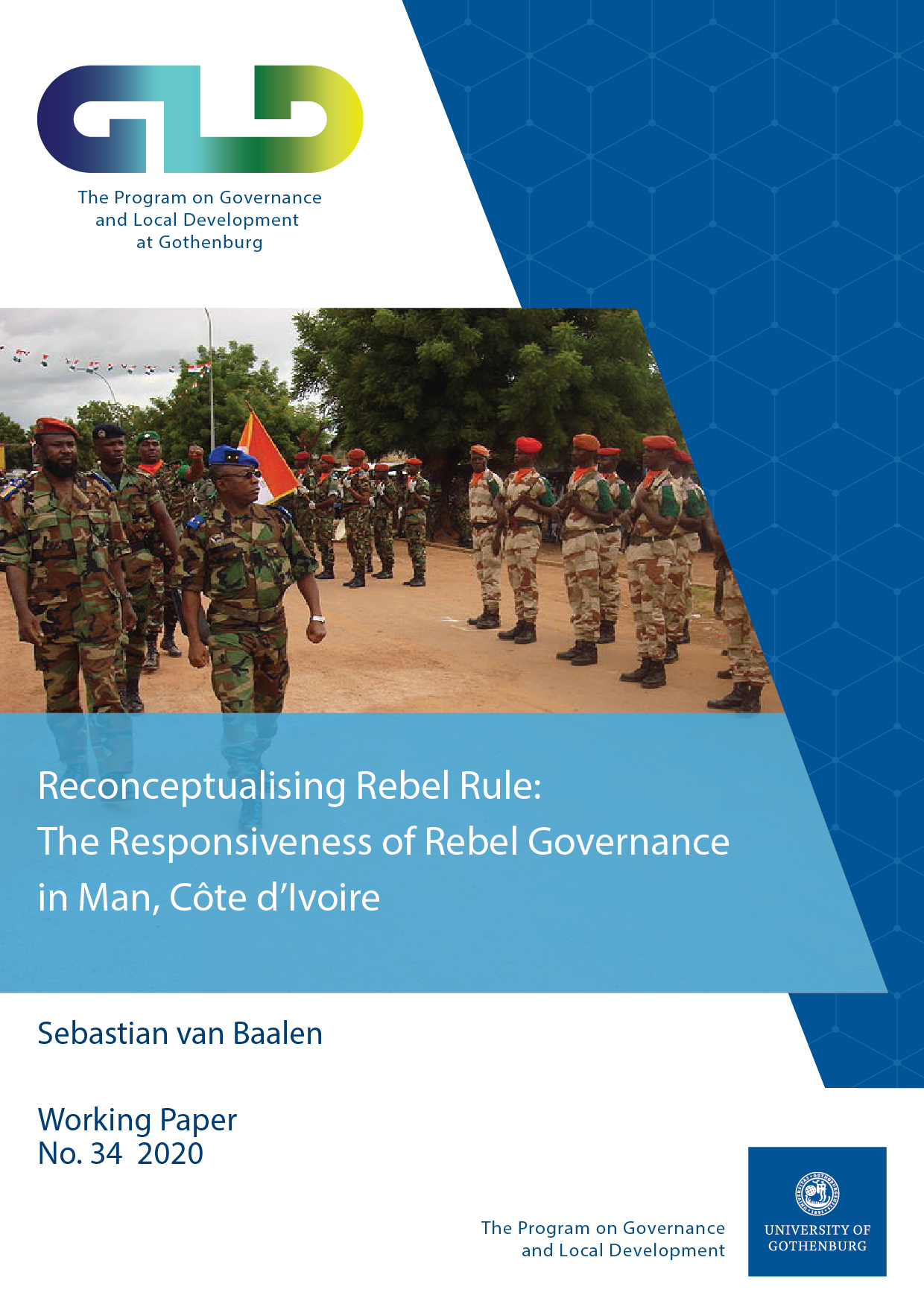No.34 Reconceptualising Rebel Rule: The Responsiveness of Rebel Governance in Man, Côte d’Ivoire
Sebastian van Baalen
Abstract
This study considers the concept of rebel governance responsiveness by the Forces Nouvelles (FN) in Côte d’Ivoire. Responsiveness refers to the degree to which a government’s political decisions correspond to its citizens’ desires. The concept of responsiveness is vital for assessing regime types and constitutes an essential metric of democracy. However, the idea is rarely invoked in analyses of how rebel groups relate to civilian preferences in how they govern citizens in rebel areas. The study makes three contributions. First, it develops a conceptualisation of rebel responsiveness across four domains: representation, security, taxation, and welfare. Second, it demonstrates the concept’s usefulness through a case study of two ethnic communities in Man, Côte d’Ivoire, using unique interview and archival data. The study shows that while the FN governed both ethnic communities, rebel responsiveness differed in significant ways. This finding highlights that focusing on the mere existence, rather than the responsiveness, of rebel governance is insufficient for capturing the nature of civilian life under rebel rule. Third, the study shows how focusing on rebel governance’s responsiveness can uncover new insights about civil war.
